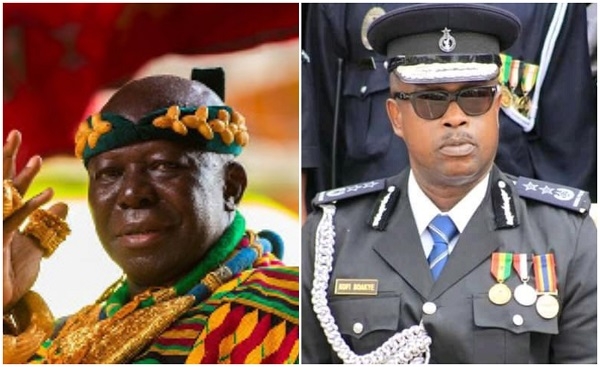

Fitch typically does not assign Outlooks to issuers with a rating of 'CCC' or below.A full list of rating actions is at the end of this rating action commentary.KEY RATING DRIVERS Increased Probability of Debt Restructuring: The downgrade reflects the increased likelihood that Ghana will pursue a debt restructuring given mounting financing stress, with surging interest costs on domestic debt and a prolonged lack of access to Eurobond markets.
The government's slim majority in parliament could frustrate attempts to raise tax rates or implement new taxes.Partially Guaranteed Note Could Be Excluded: We affirmed the rating on Ghana's partially guaranteed note backed by the World Bank's International Development Association as the note may be excluded from a debt restructuring even if other Eurobonds are included.ESG - Governance: Ghana has an ESG Relevance Score (RS) of '5[+]' for both Political Stability and Rights and for the Rule of Law, Institutional and Regulatory Quality and Control of Corruption.
Ghana has a medium WBGI ranking at the 53rd percentile, reflecting a recent record of peaceful political transitions, a moderate level of rights for participation in the political process, moderate institutional capacity, established rule of law and a moderate level of corruption.Ghana has an ESG Relevance Score of '5' for Creditor Rights, as willingness to service and repay debt is relevant to the rating and is a rating driver for Ghana, as for all sovereigns Ghana's restructuring of public debt in 2006 has a negative impact on the credit profile.RATING SENSITIVITIESFactors that could, individually or collectively, lead to negative rating action/downgrade:-Announcement of a debt exchange offer that Fitch would consider as a distressed debt exchange would lead to a downgrade of the relevant IDR and affected issuances.- Signs that the partially guaranteed notes might be included in a restructuring could lead to a downgrade of the rating on the notes.Factors that could, individually or collectively, lead to positive rating action/upgrade:- Evidence that local- or foreign-currency debt would be excluded from an overall effort to address Ghana's debt pressure could lead to an upgrade of the relevant IDR and affected issuances.- Signs that an IMF programme will not require any restructuring and that solvency and liquidity pressure can be addressed with fiscal consolidation.SOVEREIGN RATING MODEL (SRM) AND QUALITATIVE OVERLAY (QO)Fitch's proprietary SRM assigns Ghana a score equivalent to a rating of 'B' on the Long-Term Foreign-Currency IDR scale.
Best- and worst-case scenario credit ratings are based on historical performance.ESG CONSIDERATIONSGhana has an ESG Relevance Score of '5[+]' for Political Stability and Rights as WBGIs have the highest weight in Fitch's SRM and are therefore highly relevant to the rating and a key rating driver with a high weight.
As Ghana has a percentile rank above 50 for the respective Governance Indicator, this has a positive impact on the credit profile.Ghana has an ESG Relevance Score of '5[+]' for Rule of Law, Institutional & Regulatory Quality and Control of Corruption, as WBGIs have the highest weight in Fitch's SRM and are therefore highly relevant to the rating and are a key rating driver with a high weight.
As Ghana has a percentile rank above 50 for the respective Governance Indicators, this has a positive impact on the credit profile.Ghana has an ESG Relevance Score of '5' for Creditor Rights, as willingness to service and repay debt is relevant to the rating and is a rating driver for Ghana, as for all sovereigns.
Given the increasing possibility of default reflected in the 'CC' rating, this has a negative impact on the credit profile.Ghana has an ESG Relevance Score of '4[+]'for Human Rights and Political Freedoms, as the Voice and Accountability pillar of the WBGIs is relevant to the rating and a rating driver.






